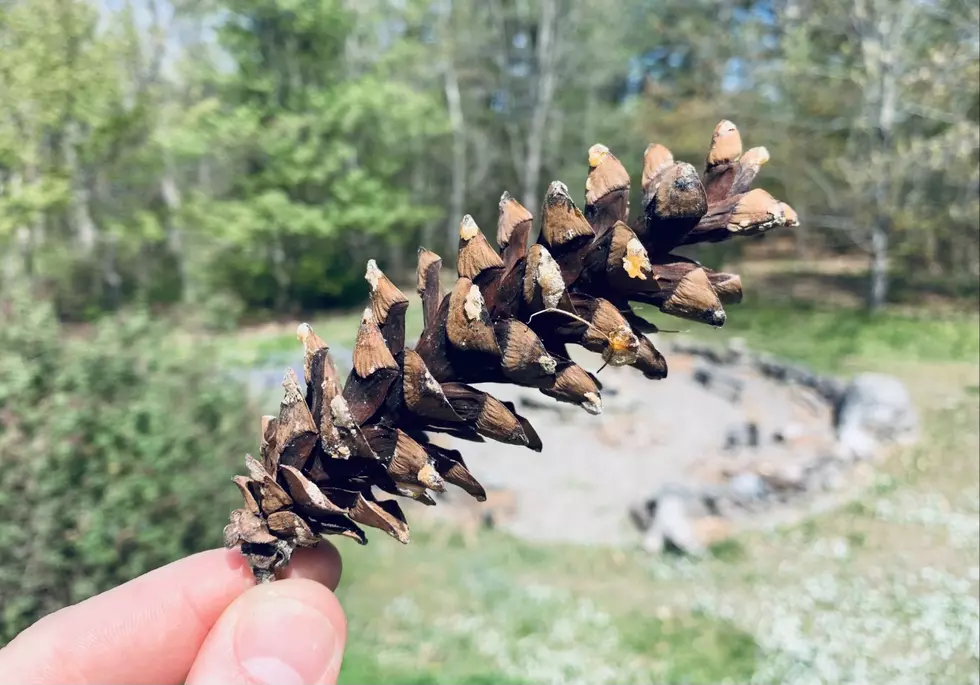
5 Unique Ways To Upcycle Fallen Pine Cones In Your Maine Yard
Right now, you're probably mostly swearing at pine cones.
Not unlike the onslaught of acorns we see this time of year, pine cones of all shapes and sizes are everywhere. If you look around your yard right now, you wouldn't have to creep around very long to collect a sizeable cache of cones. After all, we're not called the Pine Tree State because of our acorn stash.
More often then not though, people overlook the wildly diverse uses of pine cones around your house. They're so much more than just yard debris. They can provide everything from a meal ingredient to an accessory for heating your home. So why don't we get into a few of the most solid uses for pine cones.
They can literally feed you.
Chances are you've heard of pine nuts before. Granted, the ones you see in restaurants are different than the ones we'd harvest here in Maine, but every pine tree produces an edible nut of some kind. It's best if you look in the unopened ones. You're more likely to find the nuts. Opened ones are usually already empty from small animals.
Read all about harvesting the nuts right here. Although to be fair, most of the ones we eat in America come from China and Russia. Go figure...
You can make really cool Christmas decorations.
The neat thing about pine cones, is they basically mimic the shape of the full grown tree. So if you're making some DIY Christmas ornaments, you can easily use them as a sub for an actual tree. Slap some green paint on it and, Boom! You've got yourself a little mini Christmas tree.
How about a sweet little bird feeder?
This is a really neat use for a pine cone. Essentially, you could make tiny little suet/seed feeders with pine cones. Just render down a little fat and dip the pine cones in it, then sprinkle bird seed on them. Attached something to hang them in a tree with, and you're good to go!
Pine cones make a great mini camping torch.
This could go in a couple directions. You could make them into a little torch that you could use to see your way around in the woods while camping. Not everyone has a lighter, and flashlight batteries die. Granted, it's a bit of a fringe-y use, but it would get the job done. It also brings me to the quite possibly the most perfect use...
They make an absolutely incredible fire starter.
I use pine cones for this all the time. Sometimes by the handful, or my wife used to make fire starter platters. She'd melt some candle wax and put a bunch of small pine cones and shredded paper on a paper plate, and drizzle the wax all over it. All you had to do then was simply set the plate in the wood stove with all you tinder, and simply light the plate on fire. The rest took care of itself!
You gotta figure, you're either going to ignore them completely, or you might just scoop up all the pine cones and throw them away. All these are totally acceptable. But if you can repurpose them in a way that services you, why not do yourself a favor? After all, what better person is there to do a favor for?
See where Maine's coziest towns fall on this list...
LOOK: 50 cozy towns to visit this winter
Gallery Credit: Laura Ratliff
Quiz: Do you know your state insect?
Gallery Credit: Andrew Vale
States with the most registered hunters
Gallery Credit: Meagan Drillinger
